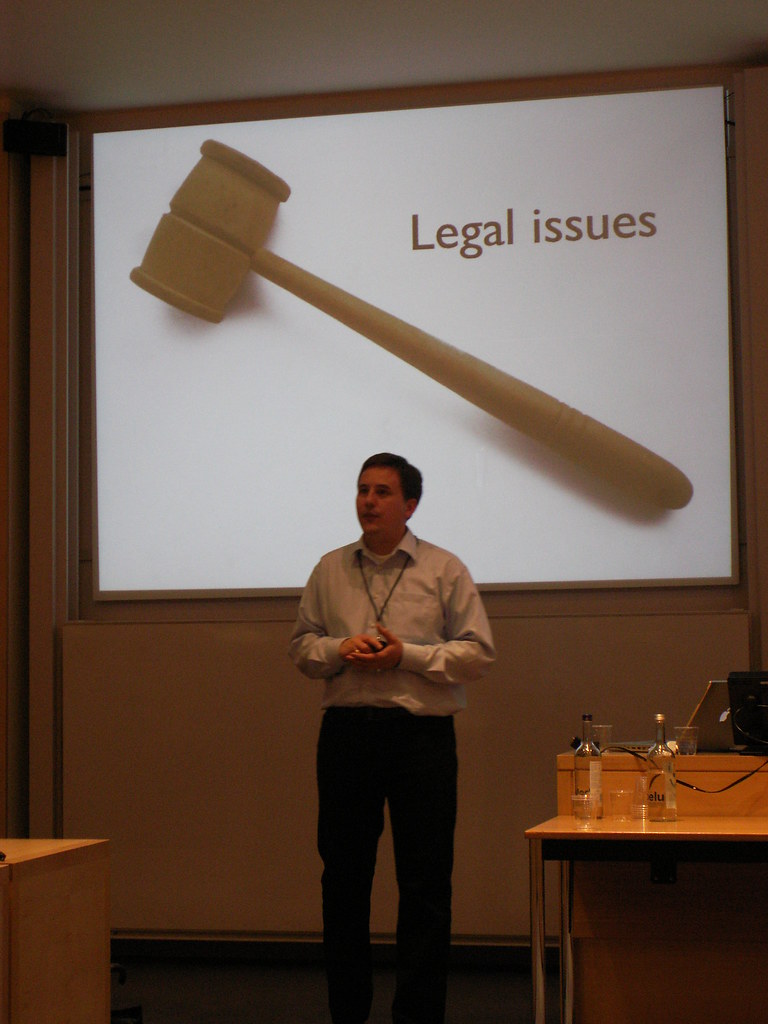Breaking A Lease
by Osman Parvez
—-

Before getting serious about buying a home, and absolutely before you ask your agent to write an offer, you need to know a few things. You need to know whether you’re ready. You should check to see if it’s better to buy or rent. You also need to figure out how you plan to handle your lease situation.
What are your options?
We usually recommend you first try to work something out with your landlord. If you’re willing to find a new tenant, equally or better qualified then yourself, most will gladly accommodate you.
What if you can’t work it out with your Landlord? In that case, you might have to stick it out until the end of the lease term or be held responsible for unpaid rent. Read your lease agreement carefully. In other cases, you might have a valid reason to breaking a lease. If you think that’s the situation, here’s what you need to know (from Colorado Legal Services) :
Q. How can I find out if I can break my lease?
A. In most cases, unless your lease specifically allows you to end your tenancy early, you cannot get out of your lease without the landlord’s permission. If you have a written lease, you should read it to determine whether you can break your lease. You should also read your lease for the timeline and procedures you need to follow to get out of your lease.Q. What if my landlord has done something to make it necessary to break my lease?
A. It is a different situation if your landlord has done something in violation of the lease. If this is the case, the landlord may have broken the lease, not you. If your lease states that your landlord must do something (i.e. make repairs) and your landlord fails to do it, in theory, you may be able to move without liability (without being responsible for the rest of the lease); although this can be very difficult to enforce. In fact, if your landlord’s breach of the lease has made it impossible or unsafe to continue residing at the premises, this could be known as “constructive eviction”. In other words, if your landlord’s actions or failure to act results in your inability to continue living at the premises, your landlord has essentially evicted you. In any case, you are encouraged to consult with an attorney before doing so, because the tenant who takes this approach should be prepared to defend their actions in a lawsuit started by the landlord.Q. Can I break my lease if I am in danger due to domestic violence or abuse?
A. Yes. As of July 1, 2005 victims of domestic violence or abuse that seek to break their lease due to fear of imminent danger for themselves or their children may do so if they provide their landlord with evidence of the domestic violence or abuse in the form of a police report written within the prior 60 days or a valid protection order AND if they pay their landlord one month’s rent within 90 days after vacating the premises.Q. Can I just move out before the end of the lease?
A. If you do not have a successful claim that your landlord has broken your lease and you move out before the end of the lease term, the landlord may successfully sue you for the rent. You could be responsible for rent until the end of the lease term or until the property is rented to someone else, whichever comes first.Q. What is the responsibility of the landlord if I move out?
A. The landlord has the legal responsibility to try and re-rent the property as quickly as possible. In other words, the landlord cannot leave the apartment vacant until your lease expires without trying to re-rent it, and then try to hold you responsible for rent for that entire period.Q. What is the best thing for me to do if I want to leave the property before the end of the lease?
A. If you would like to move out before the lease expires, it is in your interest to try to re-rent the property. You may also try to find someone who is willing to take over your lease. To avoid future problems, you should make sure that your landlord agrees to whatever you have arranged before you move out.Q. Is terminating a tenancy the same thing as moving out early?
A. Terminating a tenancy is not necessarily the same thing as moving out early. Terminating the tenancy means that the contract between the two parties is terminated, either because a party violates the lease or because at the end of the lease, you (or the landlord) do not want to renew it and you (or the landlord) intend to move out at the end of the lease, so the necessary notice is provided to terminate the tenancy. If the tenancy is not terminated at the end of the lease by either party, the lease may automatically renew. The tenancy may also be terminated by mutual agreement of both parties or in accordance to the law (see below). If a tenant simply moves out early without the lease being properly terminated as described above, the landlord may try to hold the tenant accountable for the time the unit remains vacant, despite best efforts of the landlord to re-rent it.Q. If I don’t want to lease the property anymore, what should I do?
A. You may need to terminate your tenancy, so you should read your lease to be sure you understand exactly what it says. Refer to your lease for the timing of your notice to terminate the lease. Leases state when and how a lease may be terminated and they usually state that a certain amount of notice is required from the tenant or from the landlord if either party wants to terminate the tenancy.Q. I am a month-to-month tenant, what will need to do?
A. If you are a month-to-month tenant, you must give a written notice to the landlord if you want to move. If you have no written lease, you must give the landlord written notice at least 10 days before the next rent is due. For example, if you want to move out March 31, you must give your landlord notice on or before March 21 that you are moving. If you have a written month-to-month lease, look at the section in the lease that tells you when to give your landlord written notice to terminate the tenancy by the end of the following month.Q. What if I am unable to give enough notice?
A. If you are unable to give enough notice to your landlord, try to give as much written notice as possible. If you do not give enough notice, the landlord may be able to recover money from you. The landlord may be able to keep your deposit. He or she may also be able to sue you for the costs of finding a new tenant. You may also have to pay the rent the landlord lost while the apartment was vacant.Q. What should I keep for my records, in case I need to produce them again?
A. Keep a copy of the lease and any notices that you gave to your landlord, or any notices your landlord gave you.Q. What if my Landlord is not responding to repair issues with the property and I have health/safety concerns?
A: There are steps you can take. Visit this page for more details.
NOTE: The information above is provided by Colorado Legal Services. It is intended as general information only, and is not meant as legal advice for any specific situation. If you need legal advice, consult an attorney of your own choosing. If you cannot afford an attorney, talk to Colorado Legal Services: 303-837-1321.
p.s. The information above also only applies to Colorado. If you are not in Colorado, you’ll need to find your local/state regulations regarding breaking a lease.
Image: Stuart Yeates
—-
Want to get blog updates via email? Click HERE.
Ready to buy or sell? Schedule an appointment or call 303.746.6896.
You can also like our Facebook page or follow us on Twitter.
As always, your referrals are deeply appreciated.
—
The ideas and strategies described in this blog are the opinion of the writer and subject to business, economic, and competitive uncertainties. We strongly recommend conducting rigorous due diligence and obtaining professional advice before buying or selling real estate.
Breaking A Lease
by Osman Parvez
—-

Before getting serious about buying a home, and absolutely before you ask your agent to write an offer, you need to know a few things. You need to know whether you’re ready. You should check to see if it’s better to buy or rent. You also need to figure out how you plan to handle your lease situation.
What are your options?
We usually recommend you first try to work something out with your landlord. If you’re willing to find a new tenant, equally or better qualified then yourself, most will gladly accommodate you.
What if you can’t work it out with your Landlord? In that case, you might have to stick it out until the end of the lease term or be held responsible for unpaid rent. Read your lease agreement carefully. In other cases, you might have a valid reason to breaking a lease. If you think that’s the situation, here’s what you need to know (from Colorado Legal Services) :
Q. How can I find out if I can break my lease?
A. In most cases, unless your lease specifically allows you to end your tenancy early, you cannot get out of your lease without the landlord’s permission. If you have a written lease, you should read it to determine whether you can break your lease. You should also read your lease for the timeline and procedures you need to follow to get out of your lease.Q. What if my landlord has done something to make it necessary to break my lease?
A. It is a different situation if your landlord has done something in violation of the lease. If this is the case, the landlord may have broken the lease, not you. If your lease states that your landlord must do something (i.e. make repairs) and your landlord fails to do it, in theory, you may be able to move without liability (without being responsible for the rest of the lease); although this can be very difficult to enforce. In fact, if your landlord’s breach of the lease has made it impossible or unsafe to continue residing at the premises, this could be known as “constructive eviction”. In other words, if your landlord’s actions or failure to act results in your inability to continue living at the premises, your landlord has essentially evicted you. In any case, you are encouraged to consult with an attorney before doing so, because the tenant who takes this approach should be prepared to defend their actions in a lawsuit started by the landlord.Q. Can I break my lease if I am in danger due to domestic violence or abuse?
A. Yes. As of July 1, 2005 victims of domestic violence or abuse that seek to break their lease due to fear of imminent danger for themselves or their children may do so if they provide their landlord with evidence of the domestic violence or abuse in the form of a police report written within the prior 60 days or a valid protection order AND if they pay their landlord one month’s rent within 90 days after vacating the premises.Q. Can I just move out before the end of the lease?
A. If you do not have a successful claim that your landlord has broken your lease and you move out before the end of the lease term, the landlord may successfully sue you for the rent. You could be responsible for rent until the end of the lease term or until the property is rented to someone else, whichever comes first.Q. What is the responsibility of the landlord if I move out?
A. The landlord has the legal responsibility to try and re-rent the property as quickly as possible. In other words, the landlord cannot leave the apartment vacant until your lease expires without trying to re-rent it, and then try to hold you responsible for rent for that entire period.Q. What is the best thing for me to do if I want to leave the property before the end of the lease?
A. If you would like to move out before the lease expires, it is in your interest to try to re-rent the property. You may also try to find someone who is willing to take over your lease. To avoid future problems, you should make sure that your landlord agrees to whatever you have arranged before you move out.Q. Is terminating a tenancy the same thing as moving out early?
A. Terminating a tenancy is not necessarily the same thing as moving out early. Terminating the tenancy means that the contract between the two parties is terminated, either because a party violates the lease or because at the end of the lease, you (or the landlord) do not want to renew it and you (or the landlord) intend to move out at the end of the lease, so the necessary notice is provided to terminate the tenancy. If the tenancy is not terminated at the end of the lease by either party, the lease may automatically renew. The tenancy may also be terminated by mutual agreement of both parties or in accordance to the law (see below). If a tenant simply moves out early without the lease being properly terminated as described above, the landlord may try to hold the tenant accountable for the time the unit remains vacant, despite best efforts of the landlord to re-rent it.Q. If I don’t want to lease the property anymore, what should I do?
A. You may need to terminate your tenancy, so you should read your lease to be sure you understand exactly what it says. Refer to your lease for the timing of your notice to terminate the lease. Leases state when and how a lease may be terminated and they usually state that a certain amount of notice is required from the tenant or from the landlord if either party wants to terminate the tenancy.Q. I am a month-to-month tenant, what will need to do?
A. If you are a month-to-month tenant, you must give a written notice to the landlord if you want to move. If you have no written lease, you must give the landlord written notice at least 10 days before the next rent is due. For example, if you want to move out March 31, you must give your landlord notice on or before March 21 that you are moving. If you have a written month-to-month lease, look at the section in the lease that tells you when to give your landlord written notice to terminate the tenancy by the end of the following month.Q. What if I am unable to give enough notice?
A. If you are unable to give enough notice to your landlord, try to give as much written notice as possible. If you do not give enough notice, the landlord may be able to recover money from you. The landlord may be able to keep your deposit. He or she may also be able to sue you for the costs of finding a new tenant. You may also have to pay the rent the landlord lost while the apartment was vacant.Q. What should I keep for my records, in case I need to produce them again?
A. Keep a copy of the lease and any notices that you gave to your landlord, or any notices your landlord gave you.Q. What if my Landlord is not responding to repair issues with the property and I have health/safety concerns?
A: There are steps you can take. Visit this page for more details.
NOTE: The information above is provided by Colorado Legal Services. It is intended as general information only, and is not meant as legal advice for any specific situation. If you need legal advice, consult an attorney of your own choosing. If you cannot afford an attorney, talk to Colorado Legal Services: 303-837-1321.
p.s. The information above also only applies to Colorado. If you are not in Colorado, you’ll need to find your local/state regulations regarding breaking a lease.
Image: Stuart Yeates
—-
Want to get blog updates via email? Click HERE.
Ready to buy or sell? Schedule an appointment or call 303.746.6896.
You can also like our Facebook page or follow us on Twitter.
As always, your referrals are deeply appreciated.
—
The ideas and strategies described in this blog are the opinion of the writer and subject to business, economic, and competitive uncertainties. We strongly recommend conducting rigorous due diligence and obtaining professional advice before buying or selling real estate.
Share This Listing!
More about the author
Osman Parvez
Owner & Broker at House Einstein as well as primary author of the House Einstein blog with over 1,200 published articles about Boulder real estate. His work has appeared in the Wall Street Journal and Daily Camera.
Osman is the primary author of the House Einstein blog with over 1,200 published articles about Boulder real estate. His work has also appeared in many other blogs about Boulder as well as mainstream newspapers, including the Wall Street Journal and Daily Camera. Learn more about Osman.
Work with
House Einstein
Thinking about buying or selling and want professional advice?
Call us at 303.746.6896
Your referrals are deeply appreciated.












